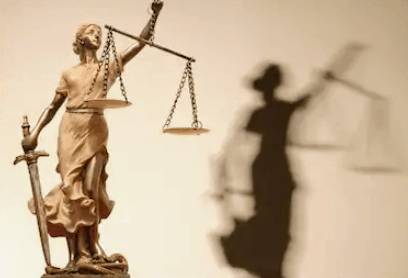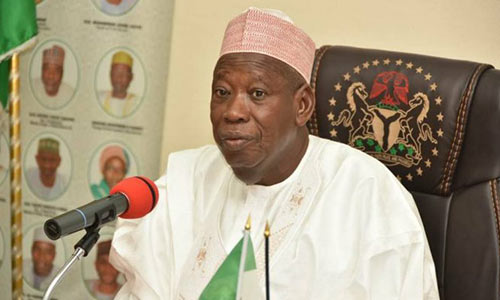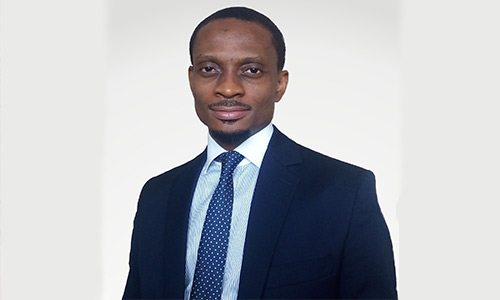When discrimination or breach to a woman’s right to self-dignity occurs at the workplace, the only Court with jurisdiction is the National Industrial Court. Workplaces just like any other should be safe and provide women with a conducive atmosphere for them to operate.
DAPAAH & ANOR. vs. ODEY
(2018)LPELR-46151(CA)
ISSUE: JURISDICTION OF THE NATIONAL INDUSTRIAL COURT-Whether the National Industrial Court has jurisdiction to hear a claim of violation of fundamental right to freedom from discrimination in a workplace by reason of sex
PRINCIPLE:
“Jurisdiction is a threshold issue and very fundamental to every adjudication, it was held in the case of OKORO & ORS. VS. EGBUNOH & ORS. (2006) LPELR-2491 (SC) thus:
“Although jurisdiction is a word of large purport and signification in the judicial process, it is not a subject of speculation or gossip by Counsel as it is a matter of strict and hard law donated by the
Constitution and Statutes. It is a threshold issue, the blood that gives life to the survival of the action, and occupying such an important place in judicial process”. Per TOBI, JSC, (of blessed memory).
It is settled law that it is the Plaintiff or Claimant’s claim that determines the jurisdiction of the Court to entertain a cause or matter. See: INAKOJU VS. ADELEKE (2007) 4 NWLR (PT. 1025) 427 @ 588-589
H-C; ELABANJO VS. DAWODU (2006) 15 NWLR (PT. 1001) 76; ADEYEMI VS. OPEYORI (1976) 9-10 SC 31; TUKUR VS. GOVERNMENT OF GONGOLA STATE (1989) 4 NWLR (PT. 117) 517. It was held in MADUKOLU
VS. NKEMDILIM (1962) 2 SCNLR 341, (1962) 1 ALL NLR 587 AT 594 that a Court is competent when: a. It is properly constituted as regards numbers and qualifications of the members of the bench, and no member is disqualified for one reason or the other; b. the subject matter of the case is within jurisdiction, and there is no feature in the case which prevents the Court from exercising its jurisdiction; and
c. the case comes before the Court initiated by due process of law, and upon fulfillment of any condition precedent to the exercise of jurisdiction”. See also: SKENCONSULT (NIG.) LTD. VS. UKEY (1981) 1
SC 6 AT 62; INAKOJU VS. ADELEKE (SUPRA) @ 588. That was Kekere-Ekun, JSC, in EMEKA VS. OKORO (2017) LPELR-41738 (SC).
It is necessary therefore that a Court has jurisdiction over a principal claim in a matter to avoid multiplicity of action between the same parties, otherwise, it will impact negatively on the proceedings and
its outcome. The complaint of the Appellant here is that part of the claim of the Respondent touching on fundamental rights cannot fall within the jurisdiction of the trial Court.
The Respondent submitted that Exhibit D6 makes it clear that she was not given any notification or advice of no performance as required by the agreement and consequently, the conclusion is that she
was victimized due to her refusal to accede to the 1st Appellant’s amorous overtures and who happens to be her line manager contrary to Exhibit D6 – a Cuso International document which prevents workplace harassment as a policy. The agreement has workplace protection clause in favour of the Respondent which was breached.
Workplace issues are strictly under the trial Court’s jurisdiction. And such issues have a wide coverage area. Section 254C (1) (d), (f), (g), (h) of the 1999 Constitution Third Alteration Act conferred on the
trial Court jurisdiction in the following matters, it says:
“Notwithstanding the provisions of Section 251, 257, 272 and anything contained in this Constitution and in addition to such jurisdiction as may be conferred upon it by an Act of the National Assembly,
the National Industrial Court shall have and exercise jurisdiction to the exclusion of any other Court in civil cases and matters-
(f) relating to or connected with unfair labour practices or international best practices in labour, employment and industrial relation matters;
(g) relating to or connected with any dispute arising from discrimination or sexual harassment in the workplace;
(h) relating to, connected with or pertaining to the application or interpretation of international labour standards; and
Furthermore, Section 254C (2) adds the following:
Notwithstanding anything to the contrary in this constitution, the National Industrial Court shall have jurisdiction and power to deal with any matter connected with or pertaining to the application of any
international convention, treaty or protocol of which Nigeria has ratified relating to labour, employment, workplace, industrial relations or matters connected therewith”.
The Respondent submitted that Exhibit D6 (2) paragraph defines workplace harassment and from the definition the complaint of the Respondent was established by evidence.
Furthermore, it was not denied in the pleadings, referred to pages 94-97 of the record of appeal. She contended that the 1st Appellant abused his position as her manager and finally terminated her employment because she refused his overtures that the trial Court made findings which were not appealed against, so they are deemed admitted, citing UGO VS. UGO (2017) MJSC VOL. 4-5 (PT. 7) 26 and IYOHO VS. EFFIONG
(2007) 4 SC (PT. 111) 90 on specific finding of a Court.
It must be made out in clear terms that the claim before the trial Court was not a fundamental Rights Proceedings brought under the specialized rules applicable to those class of claims. The claim here
was wrongful termination having its root or origin in sextortion (sexual harassment) in the workplace. A woman has inalienable right to her dignity as a woman and cannot be discriminated on the basis of her being a woman. The Respondent rebuffed all the advances of a male superior in the office resulting in the termination of her appointment and therefore it cannot have or reflect a fundamental right
breach as the principal claim. The breach was intricately connected and it led to the wrongful termination. The 1999 Constitution (As Amended) categorically protected the rights of a woman against such activities of weak men in the workplace. Section 31 of the Constitution provides that every individual is entitled to respect for the dignity of his person and Section 42 guarantees the right to freedom from discrimination and it says:
“(1) A citizen of Nigeria of a particular community, ethnic group, place of origin, sex, religion or political opinion shall not, by reason only that he is such a person-
(a) Be subjected either expressly by, or in the practical application of, any law in force in Nigeria or executive or administrative action of the government, to disabilities or restrictions to which citizens of
Nigeria of other communities, ethnic groups, places of origin, sex religions or political opinion are not made subject; or
(b) Be accorded either expressly by, or in the practical application of, any law in force in Nigeria or any such executive or administrative action, any privilege or advantage that is not accorded to citizens
of Nigeria of other communities, ethnic groups, places of origin, sex, religious or political opinions.
The trial judge relied on Section 42 and relevant international conventions to which Nigeria is a signatory and which were ratified, they have the force of law and are applicable in this Country. The challenge posed by the Appellant is that the trial Court should not have anything to do with fundamental right, I found an answer in the Constitution and the additional jurisdiction of the trial Court with regards to fundamental right breaches is provided for in Section 254C (1) (d) of the Third Alteration to the 1999 Constitution which says:
“Notwithstanding the provisions of Section 251, 257, 272 and anything contained in this Constitution and in addition to such other jurisdiction as may be conferred upon it by an Act of National Assembly, the National Industrial Court shall have and exercise jurisdiction to the exclusion of any other Court in civil cases and matters-
d. relating to or connected with any dispute over the interpretation and application of the provisions of Chapter IV of the Constitution as it relates to any employment, labour, industrial relations, trade
unionism, employers association or any other matter which the Court has jurisdiction to hear and determine.”
It is crystal clear that Chapter IV provides for right to human dignity and freedom from discrimination which is both human rights amongst other human rights. The trial Court therefore can within a claim
arising from employment or a claim related to where those rights are intricately connected and to which workplace related issues arise have jurisdiction.
It is settled that once the alleged breach of human rights is not the principal claim, the Court with complete or fuller jurisdiction usually hears the claim, therefore, the trial Court can hear a claim for wrongful termination where a breach of human right is alleged as an ancillary issue. The Supreme Court settled the issue of a principal and ancillary claim where human right is alleged as a subsidiary claim in the case of EMEKA VS. OKORO (2017) LPELR-4173 (SC) which held thus:
“When the main or principal relief or redress cannot be raised or enforced under the FREPR; it is immaterial that in the course of committing the cause of action for the main complaint some ancillary breaches of fundamental rights were committed. See TUKUR VS. GOVERNMENT OF TARABA STATE (1997) 6 NWLR (PT. 510) 549; UNIVERSITY OF ILORIN & ANOR. VS. OLUWADARE (2006) 6 – 7 SC. 154; JACK VS. UNIVERSITY OF AGRICULTURE, MAKURDI (2004) 1 SC (PT. 2) 100 – all binding decisions of this Court.”
Again, the apex Court in the lead judgment of Kekere-Ekun, JSC, set out a lengthy exposition on the issue because I find it very apt and it addresses the sole issue in this appeal, I shall therefore reproduce it for a better understanding. It says:
“Relying on the authority of SOKOTO LOCAL GOVERNMENT VS. AMALE (2007) 8 NWLR (PT. 714) 224 @ 240-241 G-A, learned senior counsel for the Appellant argued that the procedure of filing different suits emanating from the same facts is permissible and has received judicial endorsement. It is noted that being a decision of the Court of Appeal, it is of persuasive authority only. Be that as it may, it was held in that case that the case before the Court was not for a breach of or threat to the Respondent’s fundamental right but a claim in respect of land. The Court held that the only option open to the
Respondent in the circumstances was to take out a writ of summons. Reference was made to the decision of this Court in TUKUR VS. GOVERNMENT OF TARABA STATE (1997) 6 NWLR (PT. 510) 549 where it was
held that in an application for the enforcement of fundamental rights it is a condition precedent that the enforcement of the fundamental right should be the main claim and not an accessory claim. It was
further held per Ogundare, JSC, at 576 – 577 H – F (supra) that where the main or principal claim is not the enforcement or securing the enforcement of a fundamental right, the jurisdiction of the Court
cannot be properly invoked, as the suit would be incompetent.
Interestingly, in Tukur’s case, the main relief was for an order quashing the Appellant’s deposition as the Emir of Muri by the Taraba State Government. Some of the grounds for seeking reliefs under the Fundamental Rights (Enforcement Procedure) Rules were that his right to fair hearing had been breached because he was not given an opportunity of being heard before the order to depose him was given; that he was not given any notice of misconduct pertaining thereto; that the decision did not comply with the conditions precedent to the exercise of powers of deposition by the Military Governor under Section 6 of the Chiefs (Appointment and Deposition) Law Cap 20 Vol. 1 Laws of Northern Nigeria 1963, applicable to Gongola State and was therefore null and void and of no effect.
The Appellant sought other reliefs including damages. The trial High Court held that it lacked jurisdiction to entertain some of the reliefs including relief 1 seeking to quash his deposition and sub-reliefs (a) to (c) and 2 on the ground that they raised chieftaincy questions, which ought to have been commenced by way of writ of summons. It however granted the relief for damages.
On appeal to the Court of Appeal, the decision of the trial Court was set aside on the ground that having found that it lacked jurisdiction to entertain the principal claims, it ought not to have assumed jurisdiction to entertain the other claims, which were merely accessories to the main claim. Upon a further appeal to this Court, it was held that the Appellant ought to have come by way of Writ of Summons in respect of all the reliefs. It also held that the proceedings were fatally defective, having not been initiated by due process of law. The proceedings were held to be a nullity. See
also: JACK VS. UNIVERSITY OF AGRICULTURE (2004) 1 SC (Reprint) (PT. II) 100 @ 112 LINES 5 – 23. In this case, the appellant instituted an action before the trial Court under the Fundamental Rights
(Enforcement Procedure) Rules seeking various reliefs arising from her alleged wrongful suspension and dismissal by the respondent on grounds of misconduct. Some of the grounds for the reliefs sought
were that she was not afforded the opportunity of a fair hearing and that the procedure for removing staff of the University on grounds of misconduct as provided for in Decree No. 48 of 1992, was not followed.
This Court found and held that the real cause of action in the suit was wrongful dismissal from employment, which belongs to the common law class of claims, while an action for contravention or threatened contravention of a fundamental right belongs to a constitutional class of action specifically provided for and that the proper procedure must be adopted in each class of action.
This Court reiterated its earlier position in TUKUR VS. GOVERNMENT OF GONGOLA STATE (1989) 4 NWLR (PT. 117) 517 @ 548 and TUKUR VS. GOVERNMENT OF TARABA STATE (supra) to the effect that where the main or principal claim is not the enforcement or protection of a fundamental right, the fundamental right procedure is not appropriate. The case of FRN VS. IFEGWU (supra) relied upon by learned senior counsel for the
Appellant in fact supports the position of the Respondent that for the enforcement of Fundamental rights procedure to be applicable, the principal relief must be for the enforcement of a fundamental
right.”
Furthermore, the trial Court relied on OGUDU VS. STATE (1994) 9 NWLR (Pt. 366) 1 in classifying claims in human right breaches, that they are the rights that must be observed whenever the occasion of
their observance has arise. These are intrinsic and cannot be divorced from the occasion under which they arise and mostly procedural. The second class is those rights that are enforceable under Section
42 of the Constitution.
It is settled therefore that the fundamental rights procedure rules enshrined in Section 46(1) of the Constitution can be invoked when the main or principal complaint in an application is the enforcement or securing of the enforcement of a fundamental right, then the Court could exercise jurisdiction to entertain the application under the Fundamental Rights (Enforcement Procedure) Rules. That is not the case here, the principal claim and facts pleaded leading to the claim are for wrongful termination of appointment. The fundamental rights aspect are facts that led to the wrongful termination and
therefore the trial Court was on solid grounds to proceed to determine the claim because it has jurisdiction as provided for by Section 254C(1) (d) of the 1999 Constitution (As Amended) which was
reproduced above. The claim of the Respondent is simply that in the course of her employment her fundamental rights were breached leading to her termination, I agree with the Court below that the Court has jurisdiction.
Furthermore, the trial Court was also empowered by the Constitution to rely and apply international conventions which have close bearing to claims related to workplace, employment and labour matters, the claim here falls within such subject areas, therefore even if the constitution did not provide for the Court’s jurisdiction in human right issues, some conventions do and they also allow Courts in Nigeria to enforce their provisions.
Relevant Conventions here are the United Nations Convention on Elimination of All Forms of Discrimination against Women (CEDAW) & ILO Discrimination
(Employment and Occupation) Convention 1958 No. 111 which has been ratified and is in force in Nigeria, they provide for a platform for construing fundamental rights of women guaranteed under the
Constitution. CEDAW defines discrimination as follows:
“Any distinction, exclusion or restriction made on the basis of sex which has the effect or purpose of impairing or nullifying the recognition, enjoyment or exercise by women, irrespective of their material
status, on the basis equality of men and women, of human right and fundamental freedoms in the political, economic, social, cultural or any other field.”
The Convention went on to define sexual harassment in the following words:
“Such unwelcome sexually determined behavior a physical contact and advances, sexually coloured remarks, showing pornography and sexual demands, whether by words or action. Such conduct can be
humiliating and may constitute a health and safety problem. It is discrimination when the woman has reasonable grounds to believe that her objection would disadvantage her in connection with her
employment, including recruiting or promotion, or when it creates a hostile working environment.”
Going by Section 254C (2) of the 1999 Constitution as Amended, the trial Court is empowered to apply international conventions, it states as follows:
“Notwithstanding anything to the contrary in this Constitution, the National Industrial Court shall have jurisdiction and power to deal with any matter connected with or pertaining to the application of any
international convention, treaty or protocol of which Nigeria has ratified relating to labour, employment, industrial relations or matters connected thereto.”
Undoubtedly, discrimination has a negative effect on the woman by the obvious cancellation of equality or equal opportunities and treatment at the place of work, all because of her gender being a
woman and it becomes discriminatory because such untoward advances can hardly be made to a man, I cannot say it can never be made to a man in view recent developments and issues of transgender.
Therefore, when discrimination or breach to a woman’s right to self-dignity occurs at the workplace, the only Court with jurisdiction is the trial Court. Workplaces just like any other should be safe and
provide women with a conducive atmosphere for them to operate and to be who they are, women.” Per NIMPAR, JCA.(Pp.16-32,Paras.E-F).










